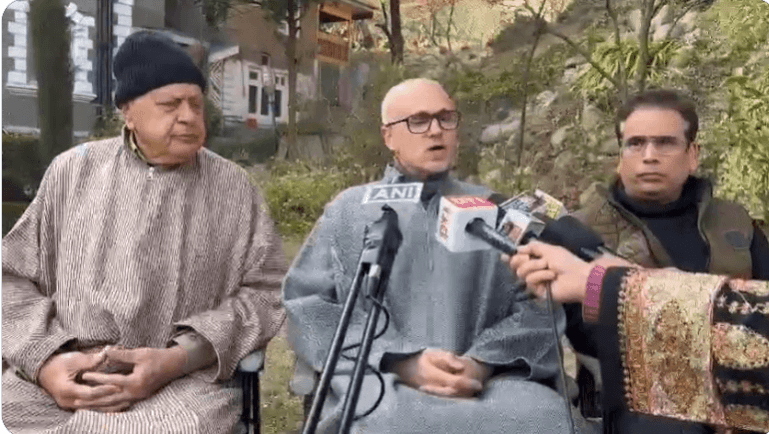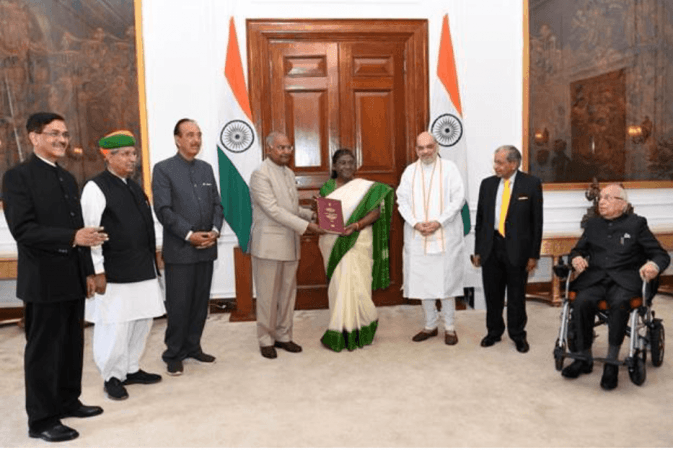
A day after a high-level panel recommended simultaneous elections for Lok Sabha and state assemblies in the country, former Chief Minister and Vice-President of the National Conference Omar Abdullah said on Friday that the "one-nation, one-election" exercise must start from Jammu and Kashmir.
"If the BJP-led government is so serious about starting the 'one-nation one election' exercise, Jammu and Kashmir is the best place from where this process must be started to set an example," Omar Abdullah said.
"Assembly elections are due in J&K, so this exercise should start in this part of the country," he said.
Pointing towards the submission of a report by the former President Ram Nath Kovind-led committee on "one nation, one election," Omar said it was a golden opportunity to start the exercise from Jammu and Kashmir, which has been without an elected government for the last so many years.
"The former president has submitted a report on the concept of 'one nation, one election'. Instead of raking up this issue at the national level, it is better to start this policy from Jammu and Kashmir," Omar said.
Emphasizing the importance of holding elections in Jammu and Kashmir, Omar Abdullah observed that fully restoring democracy in this region was paramount. "It is imperative to announce the dates for both parliamentary and assembly elections without delay," he demanded.

High-level Committee submitted its report on Friday
The High-level Committee on simultaneous elections constituted under the chairmanship of Ram Nath Kovind, former President of India, met the President of India, Droupadi Murmu, on Friday and submitted its report.
The Report, comprising 18,626 pages, is the outcome of extensive consultations with stakeholders, experts, and research work over 191 days since its constitution on September 2, 2023.
The committee held extensive consultations to understand the views of different stakeholders. 47 political parties submitted their views and suggestions, out of which 32 supported simultaneous elections. Many political parties had extensive discussions with the HLC on this matter.
In response to a public notice published in newspapers in all the States and Union territories, 21,558 responses were received from citizens from all over India. 80 percent of the respondents supported simultaneous elections.
Experts on law, such as four former Chief Justices of India and twelve former Chief Justices of major High Courts, four former Chief Election Commissioners of India, eight State Election Commissioners, and the Chairman, and Law Commission of India, were invited by the Committee for interaction in person. The views of the Election Commission of India were also sought.
The committee recommends a two-step approach for simultaneous elections.
According to an official spokesperson, after careful consideration of all suggestions and viewpoints, the Committee recommends a two-step approach to lead to simultaneous elections.
As the first step, simultaneous elections will be held for the House of the People and the State Legislative Assemblies.
In the second step, elections to the municipalities and panchayats will be synchronized with the House of the People and the State Legislative Assemblies in such a way that Municipalities and Panchayats elections are held within a hundred days of holding elections to the House of the People and the State Legislative Assemblies.
The Committee also recommends that there should be a single electoral roll and Electoral Photo Identity Cards (EPIC) for use in elections for all three tiers of government.














